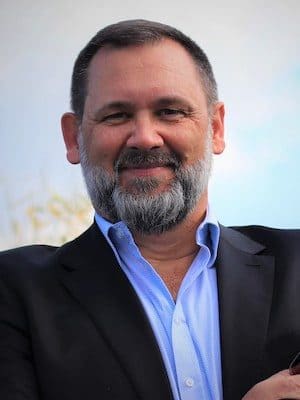I had the opportunity to speak to U.S. Sen. John Boozman (R-Arkansas) in Washington, D.C.
The experience confirmed for me simple truths about community, about the responsibility we all have to be involved in the political process, and about how authentic transformation is made possible through love even with the immense power that governments wield.
“How did you arrange that meeting?” I was asked. The short answer: I went to Sunday school.
The beloved community my wife, Dianne, and I are fortunate enough to associate with while in Arkansas is Pulaski Heights Baptist Church.
We really enjoy the sweet fellowship found in Sunday school, Wednesday church dinners and gathered worship.
When a fellow member sat next to me in Sunday school the week before we were to travel to D.C., I told her that I would love to be able to arrange a meeting with one of Arkansas’ senators to discuss freedom of religion or belief for all.
This woman is connected to more people than I will ever know. She pulled out her phone, shot off an email and said, “I’ll let you know what I find out.”
The next day I had an email address to someone in Boozman’s office. By the end of the next day, our meeting was set.
When I was telling Pulaski Heights’ pastor, Randy Hyde, about the meeting I said, “The moral of this story is that things happen when you go to Sunday school!”
We really are more connected than we realize through the relationships we have as part of a community of faith.
George W. Truett once said, “The world is now one big neighborhood. There are no longer any hermit nations. National isolation is no longer possible in the earth. The markets of the world instantly register every commercial change. An earthquake in Asia is at once registered in Washington City. The people on one side of the world may not dare to be indifferent to the people on the other side. Every man of us is called to be a world citizen, and to think and act in world terms.”
Those words were delivered almost 100 years ago from the east steps of the U.S. Capitol building in Washington, D.C., and are as relevant today as they were in 1920.
We are world citizens and neighbors. For those of us who are citizens of democracies where we have the freedom to speak truth to power, such as in the U.S., it is our Christian responsibility to be engaged in the political process in order to ensure that fairness and justice guide the laws and lawmakers of our land.
As we have spoken in churches from Maryland to Texas and from Missouri to Georgia over the past six months, we have been reminded about how diverse Cooperative Baptist Fellowship churches are and how committed each of them are to being the presence of Christ in their neighborhoods.
The act of being involved in your community is inescapably a political act. Calls for justice are made from the pews and reverberate throughout city halls, state capitols and all the way to the U.S. capitol.
This is our birthright as Baptists, who are also Americans. It is also our responsibility to ensure that whoever temporarily fills the permanent position of president is reminded that Baptists have never been and will not be silent in calls for justice and freedom, particularly freedom of religion or belief, for all.
When national policies motivated by short-term political goals endanger the long-term moral authority of the U.S. to speak to other nations about freedom of religion or belief for all, then we as faithful Baptists must learn from our heritage and lean into the task of ensuring these first freedoms are preserved.
When Christians generally but Baptists specifically – motivated by the transformative power of God’s love for all – live up to our own heritage, then we truly are co-laborers with God in creating a better world for all who bear the image of God.
In a worldwide neighborhood, filled with other bearers of the image of God, “no-go zones” do not exist. There is no place where God’s love cannot reach.
When a nation’s laws, extremists’ hate or a church’s indifference lead us to wonder if there is any word of hope we have to offer, we need to remember the one who sends us out with a good word of love and justice and hope has promised to go before us and to be with us as we go.
Shane McNary, along with his wife, Dianne, are Cooperative Baptist Fellowship field personnel serving in Slovakia. A version of this article first appeared on their blog, McNary Ministry, and is used with permission. You can learn more about the McNarys here and can follow Shane on Twitter @RShaneMcNary.
Baptist World Alliance representative to the UN in Geneva, chair of European Baptist Federation’s Freedom and Justice Commission, and Cooperative Baptist Fellowship Field Personnel serving among the Romani people in Slovakia and Czechia. When not serving in any of those capacities or preaching somewhere, you will find him with his camera hiking along the mountainous trails of Poland or Slovakia.

